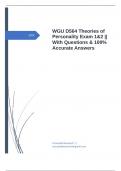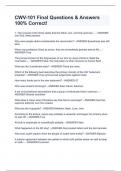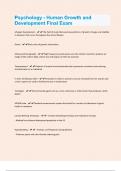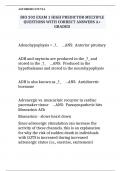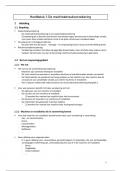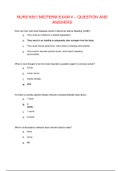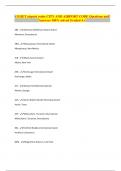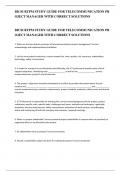Examen
WGU D564 Theories of Personality Exam 1&2 || With Questions & 100% Accurate Answers
- Cours
- Établissement
WGU D564 Theories of Personality Exam 1&2 || With Questions & 100% Accurate Answers WGU D564 Theories of Personality Exam 1&2 || With Questions & 100% Accurate Answers Personality - ANSWER - characteristic patterns of behaving, thinking, and feeling Psychodynamic Theories - ANSWER - theories...
[Montrer plus]
